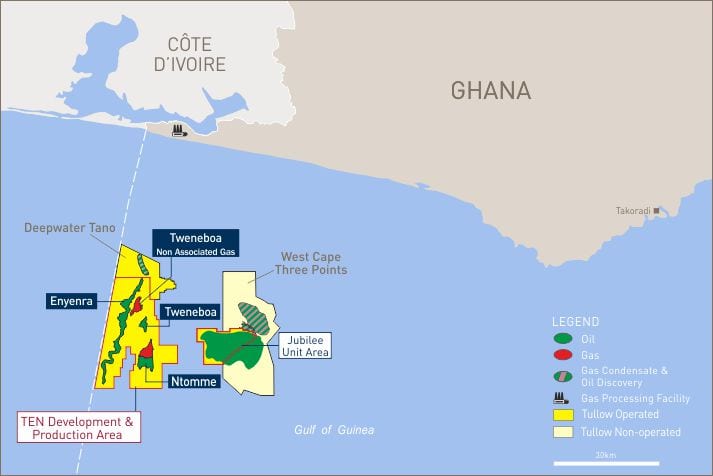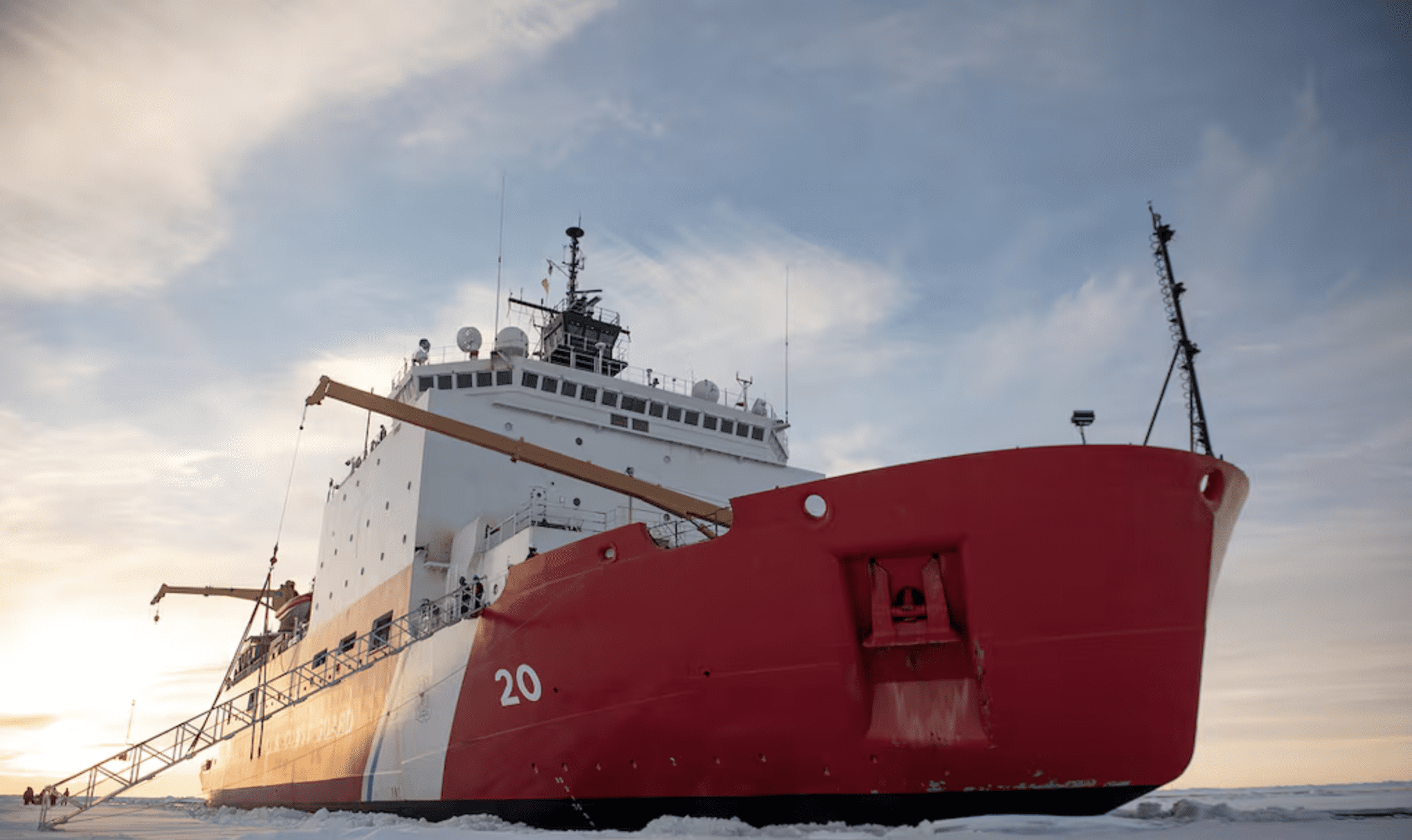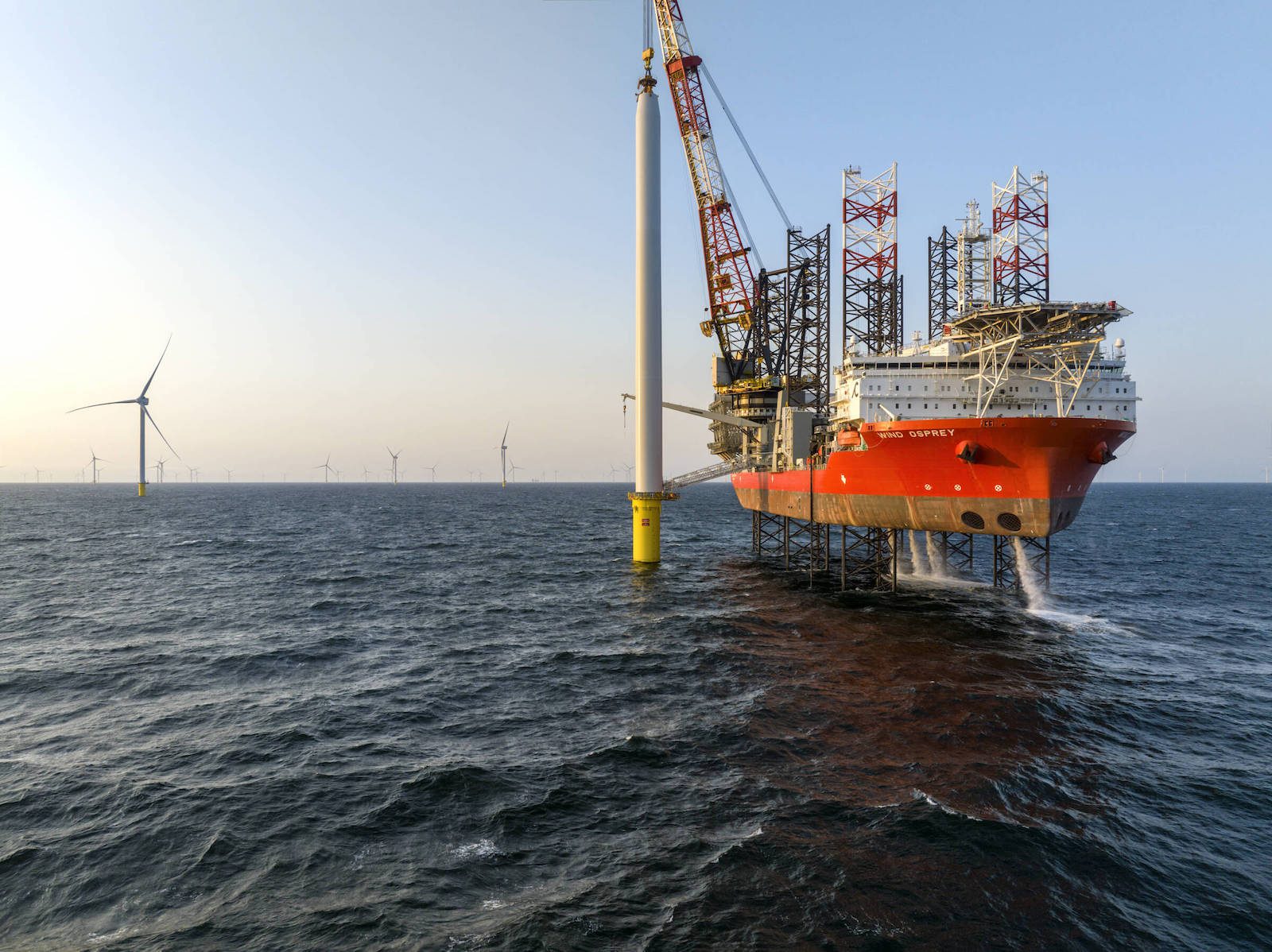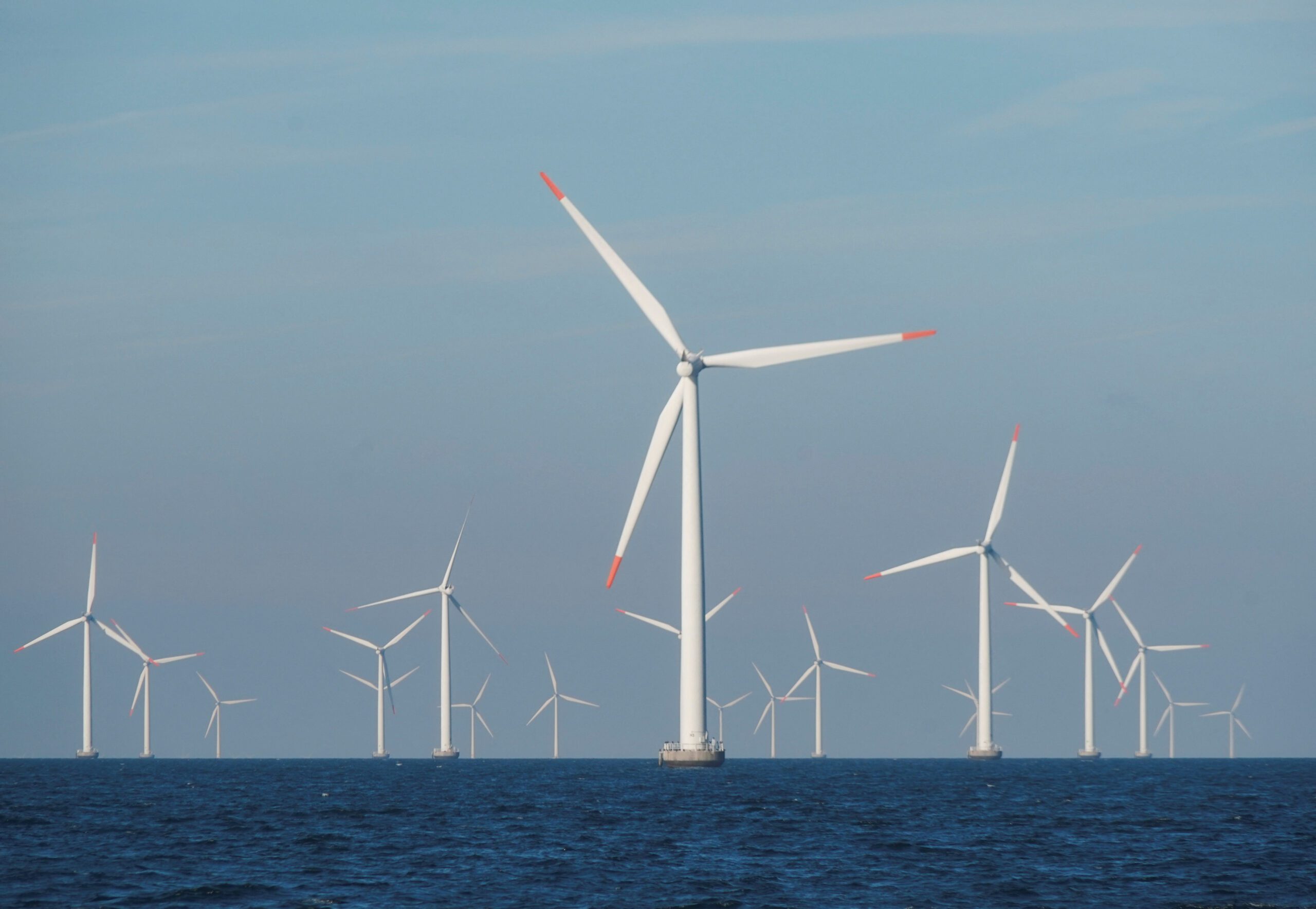“TEN” project map. Map: Tullow Oil

HAMBURG, April 25 (Reuters) – An international maritime tribunal on Saturday ruled that Ghana can continue developing a $4.9 billion dollar offshore oil project in an area caught up in a border dispute with Ivory Coast but must not start new drilling.
The decision is positive for the government of Ghana and for British firm Tullow, which leads a consortium developing the “TEN” field and has already drilled the wells it needs to begin production in mid-2016.
A moratorium would have denied the West African state’s government revenue it needs as it seeks to restore economic stability with the help of an International Monetary Fund aid programme.
Ivory Coast in February asked the Hamburg-based International Tribunal for the Law of the Sea (ITLOS) to issue a moratorium on oil activity by Ghana in the disputed area while legal hearings are held.
The decision did not judge the merits of the case and the court is expected to make a final ruling in 2017. Analysts have said that precedent suggests it is unlikely to redraw the customary equidistant boundary.
“Following this ruling, the TEN project can move ahead and we will now await instructions from the Government of Ghana with regard to implementing those provisional measures that have been ordered by ITLOS,” said Tullow spokesman George Cazenove.
The tribunal said Ivory Coast had not provided evidence to show that continued oil development at the Tweneboa, Enyenra and Ntomme (TEN) project would harm the marine environment.
It also accepted Ghana’s contention that the environmental impact of the project was adequately monitored and to suspend operations would, in fact, harm the environment by allowing wells and other equipment to fall into disrepair.
“An order suspending all exploration or exploitation activities conducted by or on behalf of Ghana in the disputed area, including activities in respect of which drilling has already taken place, would therefore cause prejudice to the rights claimed by Ghana,” the ruling said.
It directed all parties to take the necessary steps and to cooperate to prevent harm to the marine environment in the disputed area.
Revenue from TEN is important for the government as it seeks to rebalance an economy whose GDP growth is expected to slow to 3.9 percent in 2015.
For years, the economy grew strongly through exports of gold, oil and cocoa but a fall in commodity prices and problems including a stubborn budget deficit have curbed its development. (Reporting by Michael Hogan; Writing by Matthew Mpoke Bigg; Editing by)
© 2015 Thomson Reuters. All rights reserved.

 Join The Club
Join The Club











